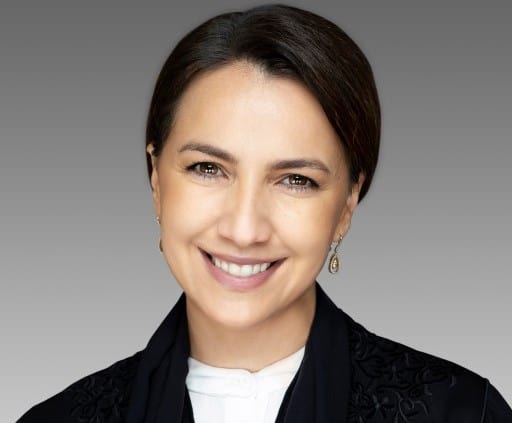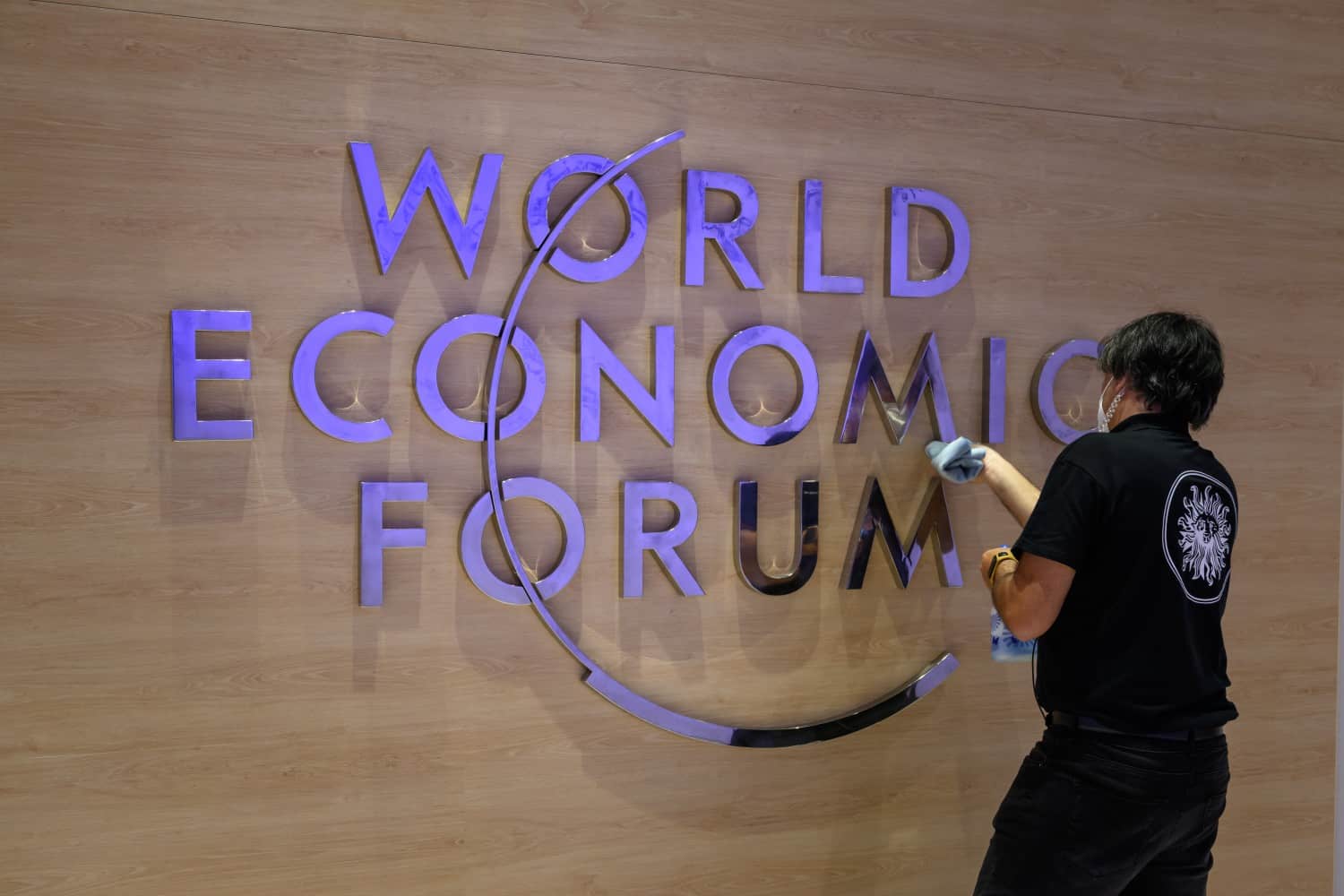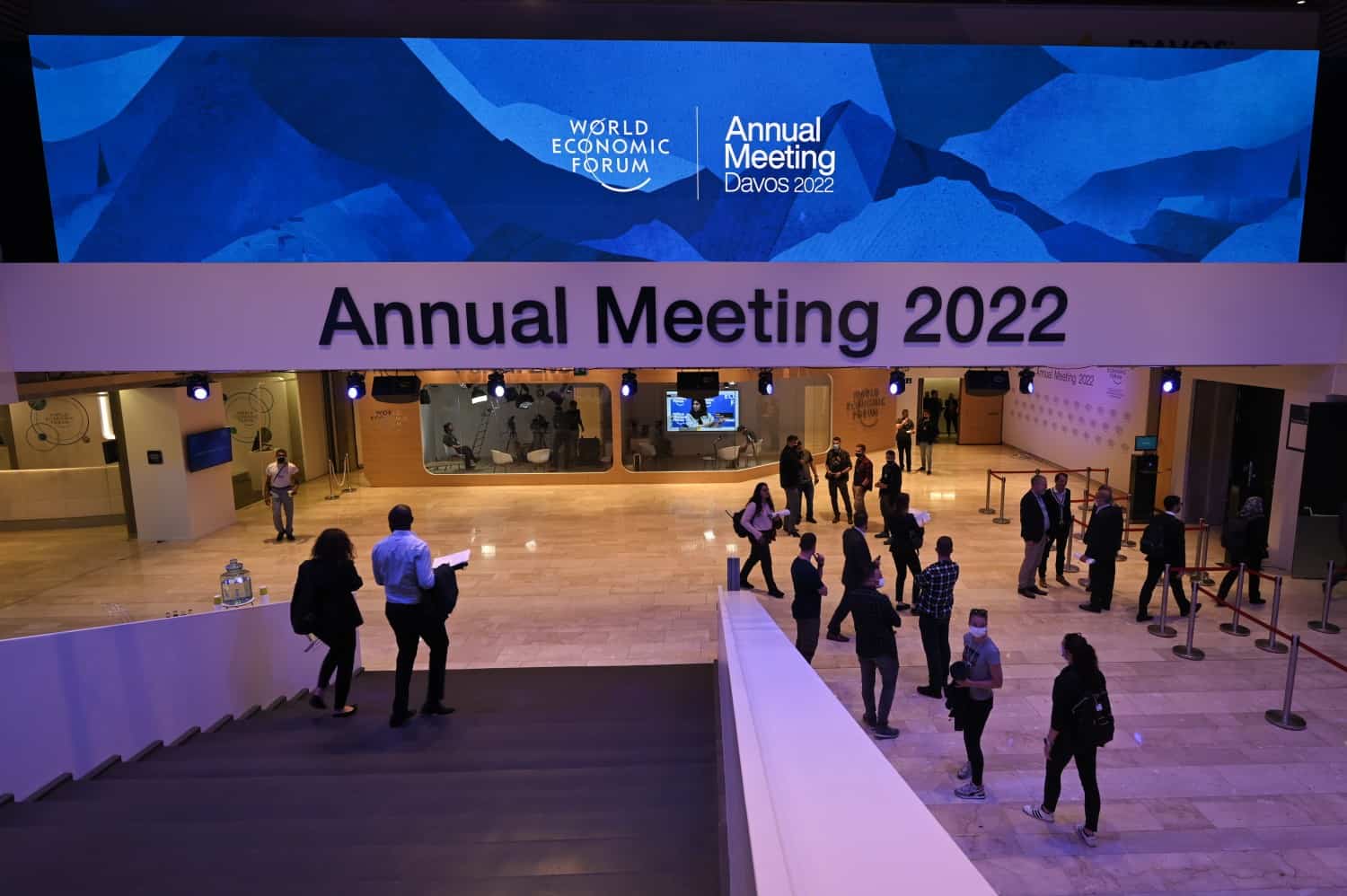The global hunger issues cannot be fixed without fixing the global food systems, said UAE’s Climate Change & Environment Minister Mariam Almheiri on the sidelines of the World Economic Forum Annual Meeting 2022 in Davos.
Being held from May 22-26, the forum’s first in-person Annual Meeting in more than two years is being attended by the world’s top leaders from politics, business, civil society, academia, media and the arts.

“It is very important that technology and innovation is leveraged as much as we can. We at COP 26, with the United States of America, launched agriculture innovation mission (AIM) for climate. This is all about how to get countries to commit and invest in climate-resilient agricultural systems. What is really important is that we need to transform our food systems into not just sustainable food systems, but now we need to talk about resilient, equitable and sustainable food systems,” Almheiri said in an interview to a television channel in the Swiss mountain village of Davos.
Beside the UAE, the other GCC countries that have sent their delegations to the WEF include Saudi Arabia, Bahrain and Qatar.
“It is very important that technology and innovation is leveraged as much as we can. We at COP 26, with the United States of America, launched agriculture innovation mission (AIM) for climate. This is all about how to get countries to commit and invest in climate-resilient agricultural systems. What is really important is that we need to transform our food systems into not just sustainable food systems, but now we need to talk about resilient, equitable and sustainable food systems,” says UAE’s Climate Change & Environment Minister Mariam Almheiri
The theme of for this year’s event, which is being held after a two-year absence because of the COVID-19 pandemic, is “History at a Turning Point: Government Policies and Business Strategies”.
Saudi Arabia
Dr. Ibrahim bin Abdulaziz Al-Assaf, Minister of State and Member of the Cabinet of Ministers, is heading the Saudi Arabia’s delegation to the World Economic Forum,
Other members of the Saudi delegation include Prince Faisal bin Farhan bin Abdullah, Minister of Foreign Affairs; Eng. Khalid bin Abdulaziz Al Falih, Minister of Investment, Mohammed bin Abdullah Al-Jadaan, Minister of Finance; Eng. Abdullah bin Amer AlSwaha, Minister of Communications and Information Technology; Faisal bin Fadhil Alibrahim, Minister of Economy and Planning, and Princess Haifa bint Muhammad Al Saud, Assistant Minister of Tourism.
The Saudi delegation to WEF seeks to engage in meaningful dialogues with the Kingdom’s international partners in several public and private sessions to seek solutions to critical global challenges including climate change, the emerging economic crisis, disrupted logistics and supply chains, geopolitical tensions, global energy security and the ongoing fallout from the pandemic.
The delegation will highlight the Kingdom’s continuous local and international efforts to respond to the eight main themes of this year’s meetings at WEF, which cover climate and nature, fairer economies, tech and innovation, jobs and skills, better business, health and healthcare, global cooperation, society and equity.
The Saudi delegation to WEF seeks to engage in meaningful dialogues with the Kingdom’s international partners in several public and private sessions to seek solutions to critical global challenges including climate change, the emerging economic crisis, disrupted logistics and supply chains, geopolitical tensions, global energy security and the ongoing fallout from the pandemic.
Members from the Saudi delegation will also outline the Kingdom’s achievements in responding to the global challenges presented by these themes. They will showcase the qualitative leap underway across Saudi’s socioeconomic and business landscape as it forges ahead with its ambitious diversification efforts under Vision 2030.
The Kingdom’s comprehensive social and economic empowerment plans – including doubling the representation of women in the labor market, accelerating the pace of job creation in new sectors – will also be discussed in detail during the delegation’s meetings in Davos.
The Saudi delegation will also touch on the Kingdom’s widely-lauded COVID-19 response and recovery efforts, the nation’s burgeoning healthcare industry, with public health and safety becoming an increasingly important economic measure of progress.
Furthermore, the climate-action policies and environmental projects underway in the Kingdom and the Middle East, including the “The Middle East Green” initiative, will be explored by the delegation as they outline the Kingdom’s commitment to prioritizing sustainability at all levels.
The delegation will also present the Kingdom’s long-term vision for the future and its strategic goal of developing a robust pipeline of talent while attracting foreign talents to accelerate the adoption of smart solutions, advanced technologies and Fourth Industrial Revolution applications.
The Saudi delegation will also outline its view on the security of resources and commodities, as well as its pivotal role in ensuring the security and stability of energy markets. It will also its long-term investments into innovative, clean and renewable energy sources to diversify the local and global energy mix.
Bahrain
A high-level Bahraini delegation will highlight the kingdom’s unique investment opportunities at the World Economic Forum (WEF).
The delegation will also shed light on the Kingdom’s recently announced Economic Recovery Plan, introduced in line with the directives of His Majesty King Hamad bin Isa Al Khalifa, following the approval from the Cabinet chaired by His Royal Highness Prince Salman bin Hamad Al Khalifa, the Crown Prince and Prime Minister.
The Economic Recovery Plan was introduced to drive economic growth and create quality opportunities for Bahrain’s citizens by boosting the Kingdom’s growth across many sectors, increasing competitiveness and attracting more investments.
A high-level Bahraini delegation will highlight the kingdom’s unique investment opportunities at the event. The delegation will also shed light on the Kingdom’s recently announced Economic Recovery Plan, introduced in line with the directives of His Majesty King Hamad bin Isa Al Khalifa, following the approval from the Cabinet chaired by His Royal Highness Prince Salman bin Hamad Al Khalifa, the Crown Prince and Prime Minister.
A number of delegation members will participate in economic sessions that will discuss international security and stability, economic development, and the current economic landscape, investment opportunities, and emerging markets in the Mena region.
The delegation includes Shaikh Khalid bin Ahmed Al Khalifa, Advisor to His Majesty the King for Diplomatic Affairs; Shaikh Salman bin Khalifa Al Khalifa, Minister of Finance and National Economy; Zayed bin Rashid Al Zayani, Minister of Industry, Commerce and Tourism; Ayman Al-Moayyed, Minister of Youth and Sports Affairs; Ian Lindsay, Advisor to the Board at the EDB; Hamad Yaqoub Al Mahmeed, Undersecretary for Research and Projects at the Prime Minister’s Office; Hala Al-Moayyed, Vice Chairman of the Board at Al-Moayyed International Group.
Oman
Secretary General of Riyadh-based Guf Cooperation Council (GCC) Dr. Nayef Falah Mubaraj Al-Hajraf and Oman’s Minister of Economy Oman Dr. Saeed bin Mohammed Al-Saqri are also attending the Davos Forum.
They met on the sidelines of the event and discussed ways to enhance the march of the GCC in all fields, particularly the completion of the requirements of the GCC stock market, and economic integration.

Qatar
In his WEF speech, Qatar’s emir Sheikh Tamim bin Hamad Al-Thani will emphasize the stances of the Gulf country and its policies towards the contemporary issues and files listed on the agenda of the new session of the forum
More than 50 heads of state or government are among the 2,500 delegates ranging from business leaders to academics and civil society figures attending the four-day gathering.
Some of the biggest names include Germany’s new chancellor, Olaf Scholz, European Union chief Ursula von der Leyen, NATO head Jens Stoltenberg and US climate envoy John Kerry.
While Russia-Ukraine war is likely to overshadow the meeting, the forum has panels on everything from climate change to rising energy prices, global supply chain problems, gender inequality, poverty, football and the metaverse.
The World Economic Forum is an independent international non-profit organization that aims to develop the world by encouraging business, policies, and scientific aspects. The forum was founded by Professor Klaus Schwab in 1971 in Switzerland. with offices in a number of major global cities. The Forum’s meetings are attended every year by a group of leaders, presidents and senior officials in countries and international companies.

